March 17, 2010
Click here for the full written transcript of this podcast episode
In this March 17th free audio episode:Does flax oil actually work, what is inflammation, exercise and beta blockers, is magnesium toxic, hunger levels after biking vs. running, the benefits of cinnamon, when to use fins in the pool, why lamb is a good meat choice, when to eat sugar after exercise, crotch pain on the bicycle, swimming and asthma, and much more!
Remember, if you have any trouble listening, downloading, or transferring to your mp3 player just e-mail [email protected]. And don't forget to leave the podcast a ranking in iTunes – it only takes 2 minutes of your time and helps grow our healthy community! Just click here to go to our iTunes page and leave feedback.
—————————————-
Featured Topic:
The results of my essential fatty acid test with Bioletics have arrived, and in this featured topic, I give Dr. Richard Cohen a call to find out the results, and find out whether the flax seed oil capsules I have been taking are actually working. In this call, Dr. Cohen explains essential fatty acids, why you need them, whether to know if you're getting enough of them, and which sources of essential fatty acids are ideal – and I find out whether I need to make some dietary changes.
—————————————-
Special Announcements
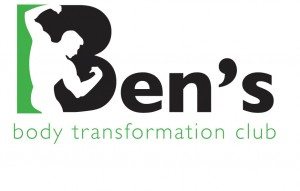 1. Ben's Body Transformation Club has officially launched! Prepare to re-invent your body and discover how to eat and exercise in the most effective way possible. Ben's Body Transformation Club is now open and has already mailed the first exercise and nutrition instructions for March, straight to your home! Want to get on board? What the heck is Ben's Body Transformation Club? You'll need to click here to find out!
1. Ben's Body Transformation Club has officially launched! Prepare to re-invent your body and discover how to eat and exercise in the most effective way possible. Ben's Body Transformation Club is now open and has already mailed the first exercise and nutrition instructions for March, straight to your home! Want to get on board? What the heck is Ben's Body Transformation Club? You'll need to click here to find out!
2. The 2010 Ironman CDA Triathlon Camp is being taught by Ben Greenfield from Sunday, May 16- Wednesday May 19, 2010, and is specifically designed to completely prepare you for the race course, race day tactics and nutrition and pacing strategies for Ironman Coeur D' Alene! Click here for more information and to register.
3. Ever wonder if your swimming technique is all it could be? Want to know if your bike is fit properly, or if you have a good pedal stroke? Would you like to know if your running gait is slowing you down or setting you up for injury? Our online video analysis of swim, bike or run is quick way to get professional feedback, inexpensively. Click here to get started now with a swim, bike or run video analysis from Ben Greenfield and the team at Pacific Elite Fitness.
—————————————-
Listener Q&A
Do you have a question for Ben? Just click Ask a Podcast Question at the bottom of this page and leave a voicemail, leave a Skype voicemail to username “pacificfit”, or e-mail [email protected].
Listener Chris asks: I've heard from several people that inflamation is bad. I believe this is true, but I don't really understand what inflammation really is. Could you explain that? Also, I climb pretty well(on the bike), but tend to gave trouble keeping up on the fast flats of a crit. Do you have any training advice to address this weakness in my cycling?
In my response to Chris, I tell him to click here to listen to a recent interview with author Monica Reinagel on the subject of inflammation and health.
Listener Chuck asks: I have a question for this weeks podcast. Lately, I have found myself just completely unmotivated to workout. Granted, I'm still getting my workouts in, but come 4 or 5 in the afternoon when I'm heading the pool or gym after work, I just feel completely exhausted. Now and then I just end up going home and taking a nap. I'm only getting about 4-6 hours to sleep at night and I know this has to be part of the issue- you would agree? But are there other reasons that could be adding to this lack of motivation and exhaustion such as a nutritional deficiency- like eating a diet too low in healthy fat or carbohydrates? I am taking most of the vitamins you reccomend. Could it perhaps be from not having the proper revcovery nutrition after my workouts as well? You answered the question I asked about this tonight on the Rockstar Triathlete call (thanks for that) so now I think that could be a reason as well. Thanks so much for you time Ben, only a month and a half till my first Half Ironman!
Listener Michael asks: I am a mountain bike racer and i live in the Northeast so I have trouble training outdoors in the winter. I use a trainer but find that when i Do so for over 45 minutes i get testicular pain. I try to get up on the bike a lot to allow blood flow and alleviate the problem but i still get it? Any ideas?
Listener Sarah asks: I have a question pertaining to exercise and beta blockers. For about a year I have been taking an 80mg slow release beta blocker (propranalol) as a preventative measure against migraines, I wondered what effect this may have on my heart rate during training sessions, both cardio and weight training, but mainly cardio workouts where more focus is placed upon working in training zones according to heart rate. It is my understanding that beta blockers are a medication which is often used to lower blood pressure and heart rate, but I have never been too sure about what this means for my training. Will I be able to reach heart rate training zones with the same effort as if I was not taking this type of medication? Or does my body need to work a little harder to reach target heart rates? And are there any other implications that I must consider when training?
Listener Scott asks: What is your take on Magnesium Stearate and Stearic Acid in multi-vitamins?
Listener Robert asks: I alternate my early morning sprint workouts between running and biking. When I do the running, I have no problem with appetite control throughout the day. However, when I do the biking, I seem to be famished the rest of the day. I suspect this has something do with the increased muscle use when biking vs. running. I’ve tried adding a few more calories to breakfast and morning snacks as well as adding more protein and carbs with limited results. I just want to eat all day after I bike. Obviously, I’m missing something. I generally eat Perfect Oatmeal or Granola and fruit in the morning and a morning snack of nuts, seeds, or a Bumble bar. Lunch generally consists of some sort of salad with beans, turkey, and veggies, etc.
Listener Joel asks: Love the podcast, thanks for all your hard work and great advice! I have a question about a friend of mine who has had to give up swimming in the pool due to breathing problems which happen after a pool session. The way he describes it it sounds almost like an asthmatic or allergic type reaction with pain and difficulty on the inhalation and shortness of breath a short while after finishing his workout. He doesn't experience this with open water swimming so I was suspicious of a potential reaction either to the chlorine or to the substances which are formed when the 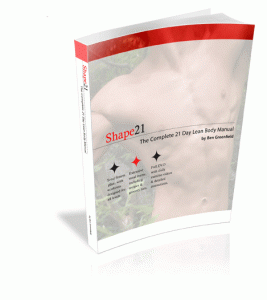 chlorine reacts with the organic matter in the pool which I believe you've mentioned on the show previously, chloramines? The pool we swim in at the Y is maintained in a traditional manner, not a more modern, low-chlorine system, which might be making things worse. He saw his regular doctor but that proved to be no help at all. I'm just wondering if you've ever heard of such a thing happening and if it could be something as simple as some sort of late-onset allergy to one or more chemicals in the pool. If this is the case I'm guessing there might not be too much to do about it.
chlorine reacts with the organic matter in the pool which I believe you've mentioned on the show previously, chloramines? The pool we swim in at the Y is maintained in a traditional manner, not a more modern, low-chlorine system, which might be making things worse. He saw his regular doctor but that proved to be no help at all. I'm just wondering if you've ever heard of such a thing happening and if it could be something as simple as some sort of late-onset allergy to one or more chemicals in the pool. If this is the case I'm guessing there might not be too much to do about it.
Listener Chuck asks: What is ideal macronutrient balance for an athlete for optimal performance? Or, how does it differ for someone looking to gain strength, someone training for an olympic distance triathlon, and for someone training for a half or full Ironman triathlon? Also, I've been following your Holistic fueling for triathletes, and you often call for meals with lamb. I don't know much about lamb, but why lamb over chicken or beef? Does it have some nutritional qualities I'm not aware of?
In my response to Chuck, I talk about Shape21…and I give away a code to get Shape21 with FREE shipping!
Listener Melinda asks: Is any form of cinnamon fully beneficial or is there an advantage to using cinnamon bark extract to powdered cinnamon?
Listener Jason asks: As I get into Build 1 and 2 of the Triathlon Dominator plan, I am increasing my swim time. Swimming is one of my limiters and I believe one of the reasons is my balance when rotating from left to right side. Along with that I am going to start to do some bilateral breathing. My question is these drill are made easier by incorporating swim fins and my thought is I will use the fins until my body adapts to the movement and then slowly take away the fins. My concern is that when I take away the fins that I still will have a lot of trouble with the breathing and will have wasted my time in the pool. Is this a good use of swim fins and if not when should fins be used?
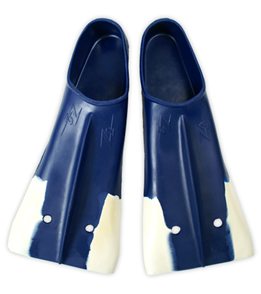 In my response to Jason, I talk about the “Zoomer” fins…
In my response to Jason, I talk about the “Zoomer” fins…
Listener Hans asks: Hello, I read your article,”How sugar makes you fat”. I was in a class described as a “medibolic —-something” it consisted of continuous squats shoulder presses, lunges, push ups with light weights definitely burned and I was worn out. The instructor's parting advice was to avoid sugar or alcoholic drinks following the work out since your body is still burning up fuel and would use the sugar introduced versus stored fat, if we were to consume sugar, etc. Did I get that right? I know sugar can be converted to fat, but is the post work out period a critical time to avoid sugar?Does that mean if I went for a Gatorade or something my body would attempt to burn the sugar from the drink before it worked on the fat, thus retarding fat loss? How long does that effect last after a work out?
Remember, if you have any trouble listening, downloading, or transferring to your mp3 player just e-mail [email protected].And don't forget to leave the podcast a ranking in iTunes – it only takes 2 minutes of your time and helps grow our healthy community! Just click here to go to our iTunes page and leave feedback.


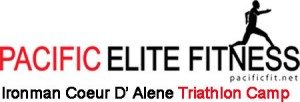
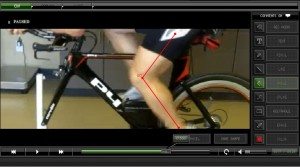
Fish oil is the way to go. Flax and plant sources of Omega-3 are the ALA form that are not as recognized by the body. Choose fish oil from smaller fish like sardines and anchovies and dump the flax.
As usual, any podcast with Dr. Cohen rocks my world. I know I am feeling good, and agree with you Ben about not getting injured, even thought I’ve pushed my body harder than ever before. That said, I will definitely be testing my EFA levels as I believe this is the key to long term health.
Thanks again for being a case study for your listeners – interesting news about your Vitamin D, after a 4-5000UI protocol.
Ben: Do you eat peanut butter? May be why your test is low for omega 3. Peanut butter is high in
omega 6. And will unbalance the ratio of EFA’s.